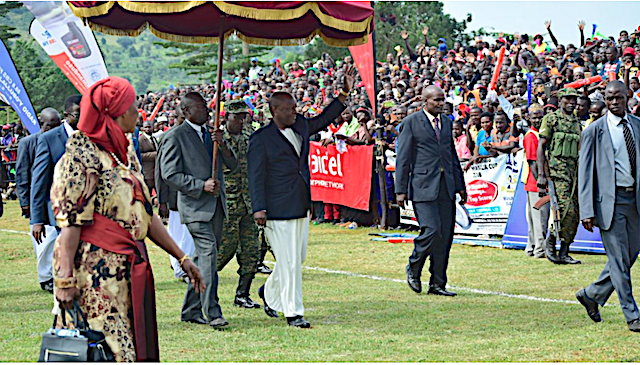
[ad_1]
Many Ugandans are tribalists, that’s a fact. Unfortunately, we are also deniers who refuse to accept and approach the issue openly, frankly and honestly. We keep sweeping it under the rug, hoping it will go away on its own. Ethnicity has always been a major political factor in almost all of Africa.
Yes, we have many governance challenges as a country, and that cannot be denied. But frankly, the recently concluded 2020-21 election was not primarily about service delivery issues, but it targeted the current sitting president primarily because of his ethnicity. Most of the people who voted for Robert Kyagulanyi aka Bobi Wine, did not necessarily see him as presidential material but as someone who is another Muganda. Yes, a few voted it to protest against the elites and bad governance of the country. I remember receiving a lot of warmth from my fellow Baganda for not supporting him, and indeed, I saw no reason to support him for the presidency, as I am not a tribalist when it comes to national problems.
About 17% of the Ugandan population are Baganda by tribe. The Banyankole, the Museveni tribe, make up about 9%. The most spoken language in Uganda is Luganda. So logic will tell you that based on the fact that the Baganda are in the majority, most of the things will come from them. Even political revolutions always started in Buganda before spreading elsewhere. The Baganda take pride in their traditions and this is often mistaken for arrogance or stubbornness, but it is not. A simple observation in all the countries that I have visited is that the dominant people of this country have the same characteristics as the Baganda.
Baganda voters have shown persistent preferences against Museveni. Besigye has been the preferred candidate of Baganda voters in previous elections, and he has seen the polls as the catalyst for a political crisis, if not a popular uprising. With Besigye, their vote was more of a protest vote than anything else, although many also considered it, no doubt, presidential material – someone capable of handling a post-Museveni Uganda.
However, due to Besigye’s ethnicity, I think the FDC never had more than 5 MPs in Buganda, although they did reasonably well in other areas. In Buganda, the FDC had 5 deputies during the last legislature, it now has 4. The FDC won 32 parliamentary seats against 57 won by the National Unity Platform-NUP.
Basically, the parliamentary opposition figures have changed but that makes no difference as the NRM has retained its majority in the National Assembly, with 337 seats.
Buganda has always been a mixture of conflicts against the state. For example, in 2009, security forces killed at least 40 people in riots sparked by a dispute over the traditional kingdom of Buganda. In 2011, at least nine passers-by were shot dead during protests against inflation and bad governance. Security forces killed at least 54 civilians in November 2020. There is still something going on – I expect protests and deaths soon due to Mailo’s land issue if it passes in parliament.
Since 1996, the western region, on the other hand, has shown the strongest support for Museveni in terms of vote share, while its vote share has been the lowest in the northern region. Museveni won the January 2021 poll with 58.4% while finalist Bobi Wine obtained 35% of the valid votes. The turnout was reportedly 59.4%, up from 63% in 2016. In 2016, Besigye did about as well as Kyagulanyi in 2021, garnering 35.6% of the vote, meaning that the vote of the national opposition has not changed in the general pattern. things. Museveni obtained 1.03 million votes against 1.8 million for Wine. Wine’s National Unity Platform also won half of the kingdom’s 109 legislative seats. For the first time, the Baganda voted en bloc for themselves, just as the Banyankole have done for years.
In February 2021, Bobi withdrew the election petition and said: “We are taking the matter to the People’s Court”. But frankly, people didn’t answer any calls from him. Thus, the way forward for the opposition is to move towards blocks of solidarity (short term) and then unity (long term). Unity cannot be achieved in the short term due to the damage done by Bobi’s novice statements over the past four years against his opposition colleagues. His supporters will continue, for a time, to fight anything associated with Besigye and others. For example, the idea launched today, ‘THE FRONT’, doesn’t make sense to most NUPs, but it’s a good idea, as they think it’s an attempt to distract of their ‘weak’ leader.
As Karl Popper once said, “There can be no human society without conflict: such a society would be a society not of friends but of ants.” Even if it were achievable, there are human values of the utmost importance that would be destroyed by its accomplishment. ”
Source link